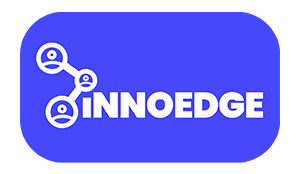As artificial intelligence (AI) and data analytics continue to evolve, they are reshaping industries and creating new opportunities. However, this rapid technological advancement is also widening the skills gap in the workforce. To stay competitive, businesses must prioritize training and upskilling their employees in AI and data analytics.
The Growing Need for AI and Data Analytics Skills
Industry Demands
A report by the World Economic Forum indicates that 60% of workers will require additional training by 2027 to keep pace with technological changes. With AI and machine learning specialists among the fastest-growing roles (World Economic Forum). As AI becomes increasingly integrated into business operations, the demand for professionals skilled in data analysis, machine learning, and AI-driven decision-making is skyrocketing.
The Skills Gap Challenge
Despite the growing need, many companies are struggling to find talent with the necessary skills. A survey revealed that up to 40% of the workforce might need reskilling within the next three years. This is due to AI implementation (World Economic Forum). This gap poses a significant challenge, as businesses that fail to upskill their workforce may find themselves at a competitive disadvantage.
How Businesses Can Prepare Their Workforce
Investing in Reskilling and Upskilling
To bridge the skills gap, companies must invest in comprehensive reskilling and upskilling programs. This involves providing employees with the necessary training to develop AI and data analytics competencies. According to the 2024 Workforce Skills Forecast, businesses that proactively implement reskilling initiatives are better positioned to adapt to changing market demands and technological advancements (Data Monsters).
Leveraging Predictive Analytics
Predictive analytics, powered by AI, can help HR departments anticipate future skills needs and plan accordingly. By analyzing data on current workforce capabilities and future industry trends, businesses can identify skills gaps early and tailor their training programs to address these needs (RefNow).
Creating a Culture of Continuous Learning
For reskilling initiatives to be successful, companies must foster a culture of continuous learning. This means encouraging employees at all levels to engage in ongoing education and skills development. Online learning platforms, workshops, and partnerships with educational institutions are effective ways to support this culture. And ensure that employees are equipped with the latest knowledge and skills (World Economic Forum).
Key Takeaways
- Increasing Demand: AI and data analytics skills are in high demand across industries, with a significant portion of the workforce needing reskilling.
- Reskilling Initiatives: Companies must invest in targeted reskilling and upskilling programs to close the skills gap and stay competitive.
- Predictive Workforce Planning: Leveraging predictive analytics can help businesses anticipate skills gaps and develop proactive training strategies.
- Continuous Learning Culture: Fostering a culture of continuous learning is essential for ensuring that employees remain adaptable and equipped to handle emerging technologies.
In conclusion, the future of work is being shaped by AI and data analytics, making it imperative for businesses to address the skills gap through strategic training initiatives. By investing in their workforce today, companies can secure their place in the increasingly competitive and technology-driven market of tomorrow.



